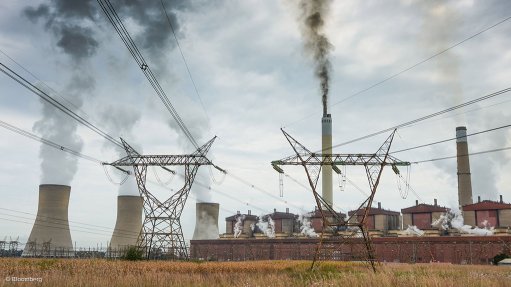Businesses are under pressure to survive the South African economy strained by continuous blackouts
This article has been supplied.
By Gareth Cremen, Partner at Cox Yeats
Electricity supply shortages continue to depreciate South Africa’s economic growth, as it has for several years. Since 2007 load-shedding has intensified exponentially, reaching close to 9 hours daily in the past year. This has disrupted economic activity and increased operating costs for businesses, creating an untenable environment in which survival is nearly impossible for businesses in South Africa. Businesses are now necessitated to rely on costly diesel generators making it extremely difficult to function at a level that generates revenue. Enterprises which are unable to absorb these extra costs and are left out in the cold. If these challenges persist businesses will continue to struggle, particularly in 2023.
To minimise further deterioration and create conditions for future growth, urgent action is needed to address supply-side constraints to the country’s growth. This includes ensuring stable electricity access. Pursuant to the recent closure of Q1, there were indications of a further reduction in economic activity which impacts the economy and puts severe pressure on business; survival and continuity which, in turn, creates a danger of substantial job losses.According to economists, South Africa is likely to slump into a technical recession as load-shedding continues to cut into the productive ability of businesses.
With the economic pressures in South Africa and fewer efforts being made to neutralise the impact of load shedding on businesses, many businesses will continue to experience financial strain. Owners and directors must, in these circumstances, consider the options available to alleviate this strain and avoid trading recklessly. With focus shifting to the survival and continuity of businesses, restructuring of companies in financial distress is on the increase globally. This process has far-reaching effects on creditors, financial institutions, shareholders, and employees.
The recent repo rate hike of fifty basis points is another punch to the gut for businesses already struggling. Compared to other countries, the cost of credit on South Africa is still relatively cheap, but for South Africans the recent hikes are a steep change to their pockets. The monetary policy committee (MPC) of the SARB Bank decided on Thursday, 25 May to decrease the repo rate to levels last seen in the wake of the 2007–2008 global financial crisis, when rates were slashed to support faltering countries. It is estimated that load shedding alone deducted two percentage points from growth this year.
Edcon,SAA, Ster-Kinekor - these are just some of the companies that have gone into business rescue in the past few years; companies that were once household names. It stands to reason that if organisations of this size struggled, many others are, too. In fact, according to statistics issues by the Companies & Intellectual Property Commission (CIPC), there are currently 1 653 active business rescue cases in process.
The rising pressure will force more businesses to weigh up the options of an informal rescue or turnaround versus business rescue versus liquidation. These decisions be cannot be taken lightly given the impact thereof on all stakeholders in the business. If restructuring is preferred, it is important to tread carefully during the process so that grounds for liquidation are not created through an admission of insolvency or an act of insolvency.
There have been 4 370 business rescue cases in total since the introduction of of this mechanism back in 2011.Business rescue, with primary goal of restoring a company to a solvent concern, has grown in popularity and will likely prove to be a necessary and preferred choice for many businesses given the current economic climate.
If companies do not act swiftly when facing financial distress, there is a danger than even business rescue will prove to be an exercise in futility. Employees and creditors usually bear the full brunt of the company’s financial distress in such circumstances. Anxiety, confusion and anger are common reactions to the uncertainty which prevails when financial distress is not addressed and no turnaround is in place. .Often, the insecurity which manifests among employees as business rescue gets underway may persist even if successful, as staff may feel concerned that the company will face similar challenges going forward.
How best to avoid such outcomes? It may help to address financial distress early on, so that business rescue does not become a final attempt at survival which is almost certain to fail.
Comments
Press Office
Announcements
What's On
Subscribe to improve your user experience...
Option 1 (equivalent of R125 a month):
Receive a weekly copy of Creamer Media's Engineering News & Mining Weekly magazine
(print copy for those in South Africa and e-magazine for those outside of South Africa)
Receive daily email newsletters
Access to full search results
Access archive of magazine back copies
Access to Projects in Progress
Access to ONE Research Report of your choice in PDF format
Option 2 (equivalent of R375 a month):
All benefits from Option 1
PLUS
Access to Creamer Media's Research Channel Africa for ALL Research Reports, in PDF format, on various industrial and mining sectors
including Electricity; Water; Energy Transition; Hydrogen; Roads, Rail and Ports; Coal; Gold; Platinum; Battery Metals; etc.
Already a subscriber?
Forgotten your password?
Receive weekly copy of Creamer Media's Engineering News & Mining Weekly magazine (print copy for those in South Africa and e-magazine for those outside of South Africa)
➕
Recieve daily email newsletters
➕
Access to full search results
➕
Access archive of magazine back copies
➕
Access to Projects in Progress
➕
Access to ONE Research Report of your choice in PDF format
RESEARCH CHANNEL AFRICA
R4500 (equivalent of R375 a month)
SUBSCRIBEAll benefits from Option 1
➕
Access to Creamer Media's Research Channel Africa for ALL Research Reports on various industrial and mining sectors, in PDF format, including on:
Electricity
➕
Water
➕
Energy Transition
➕
Hydrogen
➕
Roads, Rail and Ports
➕
Coal
➕
Gold
➕
Platinum
➕
Battery Metals
➕
etc.
Receive all benefits from Option 1 or Option 2 delivered to numerous people at your company
➕
Multiple User names and Passwords for simultaneous log-ins
➕
Intranet integration access to all in your organisation
















